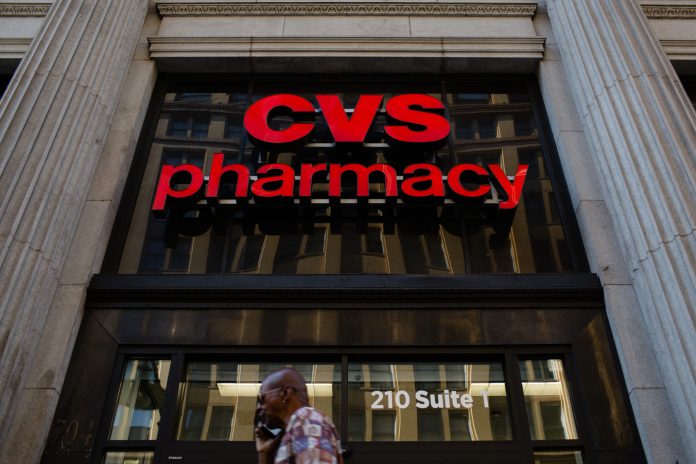
WOONSOCKET — CVS Health Corp. and Aetna Inc. have billed their pending $67.5 billion merger as a force for positive change in the health care market, but critics say there’s little proof the companies’ combined market power will aid the average consumer.
Dr. Elisabeth Rosenthal, medical journalist and editor-in-chief at Kaiser Health News, noted in a recent interview with RIPR that savings realized by the deal aren’t likely to reach individual customers.
The American Antitrust Institute sent a letter to the U.S. Department of Justice urging the agency to block the merger, warning the concentration of market power would likely increase costs for consumers.
Should the CVS-Aetna merger proceed, along with a proposed Express Scripts Holding Co.-Cigna merger, three large integrated PBM-insurer systems, CVS-Aetna, Express Scripts-Cigna, and Optum Rx-United Healthcare would dominate the market, leaving only weak incentives to compete, the letter argued.
“This stands in stark contrast to the competition that is fostered by standalone rivals,” the letter continued.
Barriers to entry in the market would also increase dramatically, making it feasible only for companies that could compete effectively in both PBM and health insurance, effectively locking out stand-alone PBMs, insurers and other participants, limiting competition and innovation sorely needed for stability and innovation in health care.
“Any of the anticompetitive effects discussed in this letter would be detrimental to consumers through potentially higher prices, lower quality, less choice, and less innovation in markets for prescription drugs and health insurance,” the institute wrote.
“Merger reviews are highly fact-specific, and the Department of Justice evaluates competitive dynamics separately for each merger it reviews. Each deal is unique and we expect regulators to see the CVS Health/Aetna transaction as transformative for the health care system and beneficial for consumers and patients. We do not expect the DOJ to find an anti-competitive nature in our Merger Agreement as they have applied recently to existing media mergers,” CVS stated in reply to a request for comment on the American Antitrust Institute letter.
Steven R. DeToy, director of government and public affairs for the Rhode Island Medical Society, is also skeptical the merger will deliver on the companies’ promise to reduce the average person’s medical costs.
“We’ve got a consolidated market the way it is,” DeToy said, “Now you want the insurance company, the pharmacy and the pharmacy benefits manager to all be owned by one company.”
DeToy said that despite claims the merger will help control costs, there’s been little detail about the actual benefit to patients. While companies can use increased market power to reduce their own costs, “That benefit rarely gets down to the customer,” he said.
CVS reported in its statement that the company and Aetna have worked with the Department of Justice staff since shortly after the announcement of the merger agreement.
“That review is progressing as planned and we continue to expect that the transaction will close in the second half of 2018.”
Rob Borkowski is a PBN staff writer. Email him at Borkowski@PBN.com.











